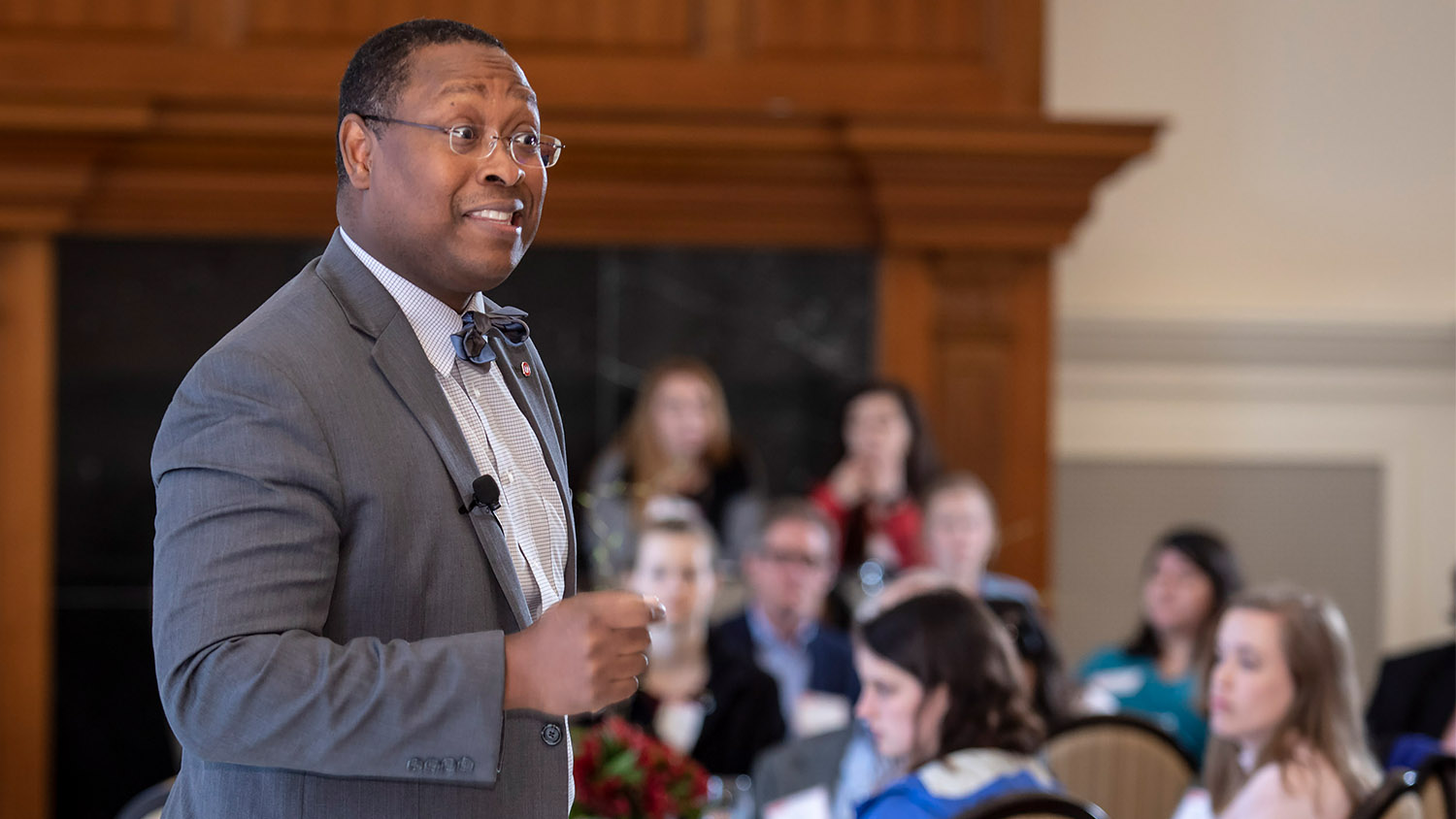Don C. Locke Symposium Lecturer James L. Moore III on Helping African American Male Students to Achieve

African American male K-12 students are underrepresented in advanced academic courses and in gifted and talented programs, including in predominantly black school districts and even when there are black teachers of those courses, said James L. Moore III during his guest lecture at the Don C. Locke Multiculturalism and Social Justice Symposium held Thursday, March 21, at the Park Alumni Center.
A reason why: teachers’ perceptions and expectations, which research has found are barriers that most impact educational aspirations for students, added Moore, the vice provost for diversity and inclusion and chief diversity officer at The Ohio State University, as well as the EHE Distinguished Professor of Urban Education and executive director of the Todd Anthony Bell National Resource Center on the African American Male.
“If a teacher does not think [a student is] capable, that affects whether [a student] thinks [he] can do that,” he said.
The manifestations of low expectations include less constructive feedback, less rigor, acceptance of low grades and less encouragement. The effect is the absence of opportunity for students to develop appropriate work habits and learn skills they need to be successful, like time management, organization and study skills.
“The biggest threat for success for African American males is . . . skills,” Moore said. “Some of the biggest underachievers are not underachievers because they do not have the ability; it is they have not learned the skills essential for college and success.”
During his lecture titled “K-12 Advanced Academics and Postsecondary Matriculation: Increasing Representation and Success Among Black Males,” Moore provided these tips for those who work directly with African American male students on how to help them achieve academic success:
- Behave as if you expect them to achieve at a high level
- Actively work to remove barriers for their learning
- Teach them how to help themselves (e.g., organizational skills, study skills, test-taking skills, etc.)
- Teach them and their families how to successfully manage the bureaucratic systems (e.g., Teach parents how to enroll their children in academic courses that will lead to college)
- Teach them and their families how to access support systems for academic success
You can watch Moore’s full lecture in this video:
The college introduced the Don C. Locke Symposium in 2018 to honor the legacy of Dr. Don C. Locke, an NC State College of Education Distinguished Professor Emeritus of Counselor Education who died in 2016.
- Categories:


